Why Just Digital Transformations
At DPA, we aim to reduce barriers and democratize the path to digital maturity for organizations, institutions, and groups. We assess the enabling conditions for just digital transformations and support civil society, as well as public and private organizations, in understanding and achieving digital maturity. Our goal is to help institutions minimize waste, optimize resource use, and access both new and existing technologies, promoting equitable development and empowering practitioners to make a greater impact.
Methods
DPA applies a mix or one of the following methods to conduct projects falling under this program: Strategic evaluation of digital-related policies, digital maturity assessments, mixed-methods digital ecosystem research, tailored recommendations, and action data plans.
Products
Evaluation of Digital Initiatives

- Nigeria, Sub-Saharan Africa (SSA)
- January 2025 - March 2025
- Partner(s): UNESCO (Funder)
Establishing a UNESCO Category 2 Centre is a vital step toward fostering international collaboration and advancing global development agendas. These Centres act as hubs to advance UNESCO’s goals of promoting peace and sustainable development across its key areas of competence—education, science, culture, and communication—in line with the SDGs.
Data-Pop Alliance (DPA), in partnership with UNESCO, conducted a feasibility study to evaluate the readiness and potential of a proposed institution in Nigeria to receive this prestigious designation. The study aimed to ensure the center would align with UNESCO’s global strategies and sectoral priorities while addressing the unique challenges and opportunities of the region. Our team examined the centre’s ability to contribute to international and regional goals, assessing its:
- Alignment with UNESCO’s Global Framework
- Operational and Financial Sustainability
- Excellence and Impact
- Collaborative Potential
DPA’s study delivered actionable recommendations which highlighted opportunities for innovation, cross-border collaboration, and sustainable development.

- Europe, European Union
- December 2024 - February 2026
- Partner(s): ADE, European Union (Funder)
- Theme(s): Feminist AI and Data Governance
The EU Gender Action Plan III (EU GAP III) is the European Union’s framework for promoting gender equality and women’s empowerment in its external action for the period 2021-2025. As this period comes to a close, DPA, in collaboration with ADE, is leading the evaluation of the approach and results reached in terms of gender mainstreaming and women and girls’ empowerment in the third EU Gender Action Plan (GAP). To achieve this, DPA is creating an evaluation framework based on research, document reviews, and interviews, in addition to two field missions to gather firsthand insights. Additionally, DPA will collaborate with the evaluation team from the European Union and other stakeholders to ensure alignment in findings.
With the ultimate objective of advising the European Commission on improved approaches to achieving universal gender mainstreaming and elevating gender equality to benefit women and girls around the world, this work will form part of the next GAP framework.
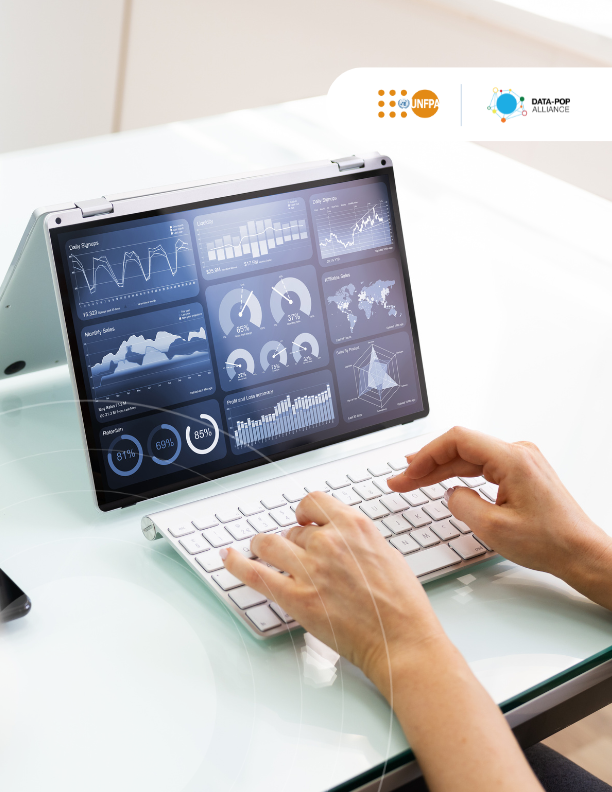
- Global
- Partner(s): UNFPA (Funder)
This consultancy developed a comprehensive system to strengthen UNFPA’s efforts in Protection from Sexual Exploitation, Abuse, and Sexual Harassment (PSEAH). Through a system-wide needs assessment, detailed data analysis, and the creation of an interactive Power BI dashboard, it generated evidence-based insights to enhance institutional capacity across global operations. The consultancy identified gaps in leadership competencies, training, and organizational mechanisms, and analyzed data from UNFPA and the wider UN system to reveal key trends and risks. The resulting dashboard enables real-time monitoring and informed decision-making, ensuring that UNFPA’s leadership training programme is data-driven, user-focused, and aligned with its commitment to safe, respectful, and accountable work environments.

- Brazil
- Partner(s): Science Br IADB (Funder)
This project will develop a scalable application to automate the generation and continuous updating of key climate change mitigation and adaptation indicators under the UN CISAT framework. The initiative will leverage advanced data science methods to produce high-quality, spatially and temporally explicit, disaggregated, and policy-relevant data to strengthen national monitoring capacities for climate action, with primary focus in Brazil. By automating workflows for Indicators 125 (Increase in Forest Area), 143 (Nature-Based Adaptation Services), and 145 (Proportion of Urban Green Spaces), the platform will bridge persistent data gaps, improve reporting efficiency, and support timely, evidence-based decision-making in alignment with the SDGs and the Paris Agreement. The application will also provide critical insights into the resilience and sustainability of ecosystems and urban environments, offering a scalable model that can be adapted and replicated in Brazil and other countries facing similar climate monitoring challenges.
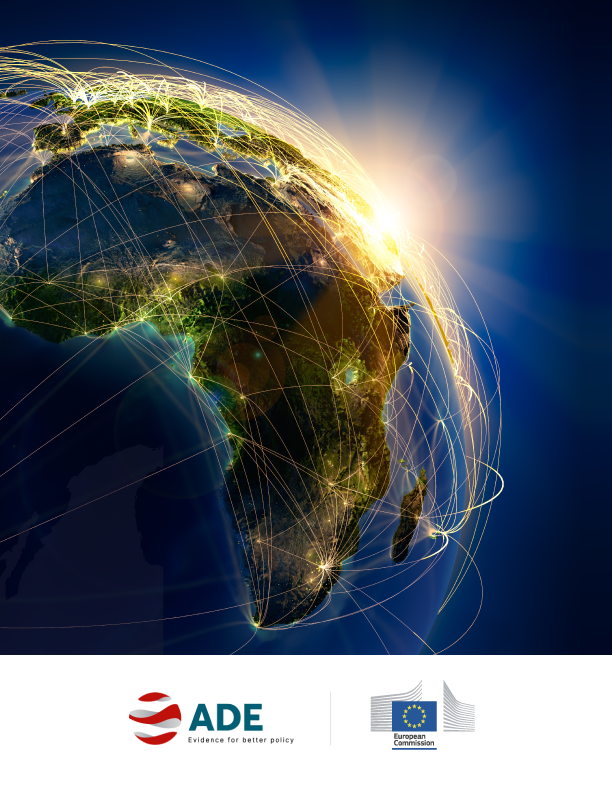
- Central African Republic, Eswatini, European Union, Ghana, Ivory Coast, Madagascar, Mali, Mozambique, Rwanda, Sierra Leone, Sub-Saharan Africa (SSA), Togo
- January - May 2020
- Partner(s): ADE (Funder), EU DEVCO
This study, produced in collaboration with ADE, assessed the European Union’s external cooperation for development (DEVCO, now INTPA) in the cross-cutting field of digitalization in Sub-Saharan Africa (SSA), with a view to issuing a series of lessons learned and recommendations to inform current and future cooperation work. In particular, this evaluation focuses on understanding and analyzing DEVCO’s investments and projects in the region, the extent to which these projects are strategically promoting the pillars, objectives and values of the EU frameworks, and to identify complementarities or lack thereof with other relevant national, regional, and international stakeholders.

FAIR Forward – Artificial Intelligence for All is a GIZ initiative aimed at promoting and achieving a more inclusive and sustainable approach to AI at the international level. This project sought to contribute to this goal through three pillars of work:
- Strengthening local AI technical know-how;
- Removing entry barriers to AI by improving access to AI technologies and data; and
- Developing policy frameworks, including ethical AI, data protection, and privacy guidelines.
DPA provided consulting services in the form of reports, guidelines, and advisory assistance under these pillars of work throughout 2021. As a result, reports and tools on subjects as diverse as the ethical use of machine learning for Earth observation, a gender-sensitive approach to AI, operating and business models to sustain open AI resources, and available data governance models for AI initiatives, among others, were produced for and incorporated by the GIZ FF initiative in its projects. In addition to this, DPA supported the creation and implementation of a data governance model in Uganda.
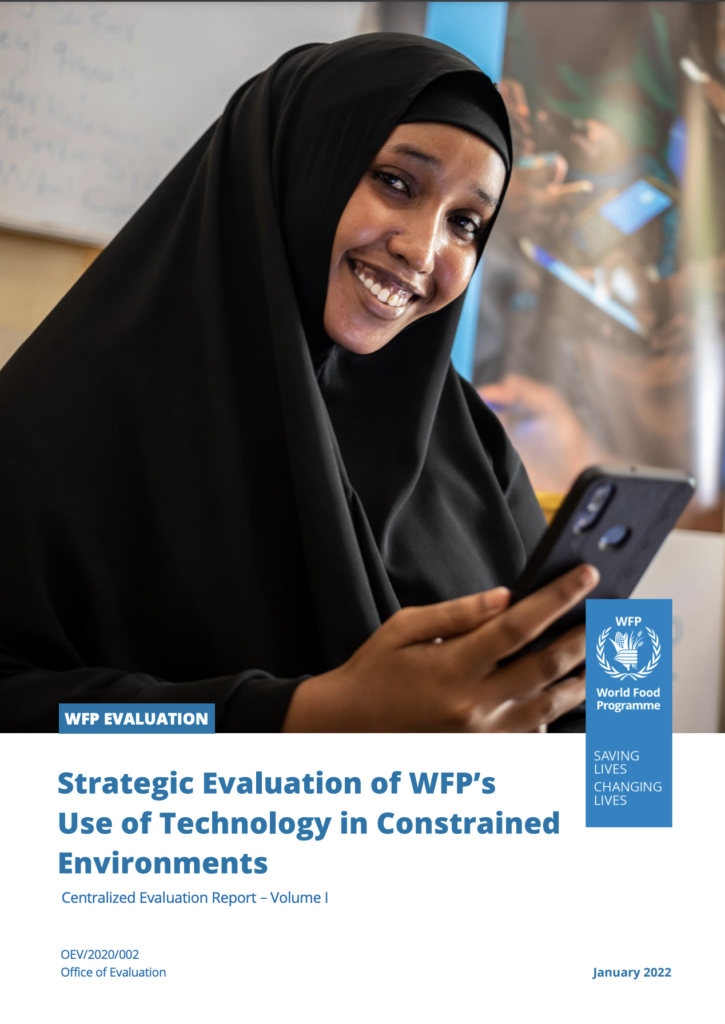
- Bangladesh, Iraq, Jordan, Middle East and North Africa (MENA), Niger, South & Southeast Asia, South Sudan, Sub-Saharan Africa (SSA), The Democratic Republic of the Congo
- September 2020 - February 2022
- Partner(s): ADE (Funder), World Food Programme
This evaluation, developed in collaboration with ADE, examined the extent to which WFP effectively and efficiently deployed the most appropriate Information and Communication Technologies (ICTs), and how, why, and under which conditions the use of these technologies contributed to management and program objectives. The team designed a mixed-methods approach consistent with WFP’s proposed analytical framework and outlined the factors affecting technological innovation and diffusion. Additionally, six case studies were conducted in Jordan, Niger, Iraq, South Sudan, the Democratic Republic of the Congo, and Bangladesh.
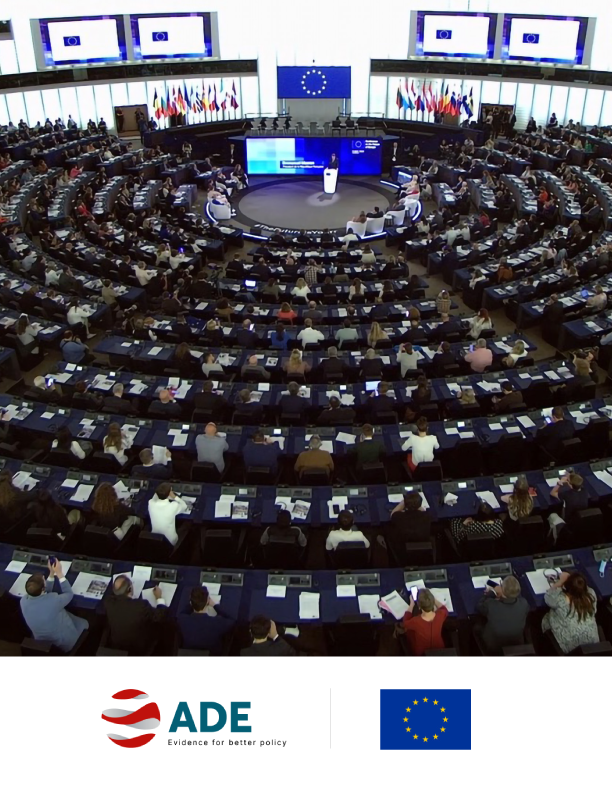
- Europe, European Union
- April 2021 - May 2022
- Partner(s): ADE, DG INTPA (Funder), DG NEAR
This evaluation, led by our partner ADE, provided an independent assessment and evidence on the EU-UN cooperation in external action-building through the analysis of five thematic areas:
- Green Deal;
- Sustainable economic, social, and human development;
- Governance, security, and governance;
- Migration and forced displacement; and
- Transition to a new digital era (led by DPA).
The evaluation assessed the EU’s influence and visibility in the UN system in relation to achieving EU priorities and supporting multilateralism. It examined the mechanisms for actual implementation and delivery of support, as well as their effectiveness and efficiency, including mechanisms for policy dialogue, programming, and cooperation. Additionally, the evaluation provided inputs on how to further improve cooperation between the EU and the UN.
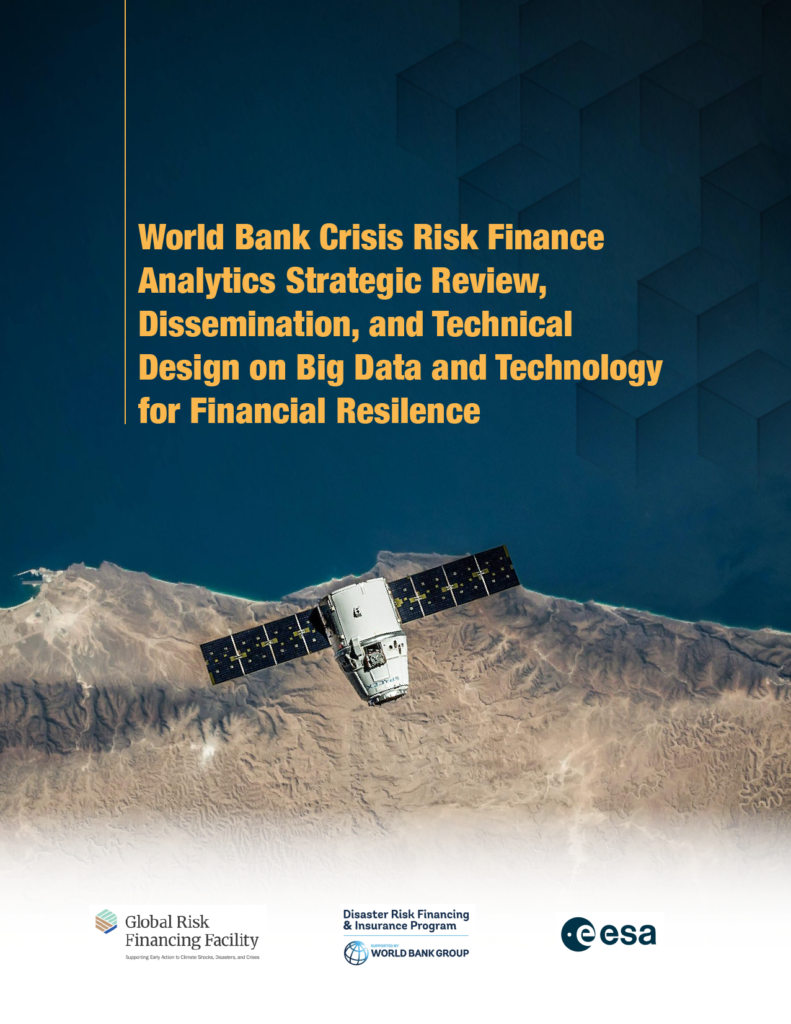
- Global
- July - November 2021
- Partner(s): Disaster Risk Financing and Insurance (DRFI) Program - World Bank, European Space Agency, Global Risk Financing Facility, World Bank Group (Funder)
In collaboration with the Global Risk Financing Facility, the Crisis and Disaster Risk Finance (CDRF) team at the World Bank, and the European Space Agency (ESA), DPA reviewed the work of the CRFA program, specifically from an outreach and data management perspective. The goal was to ensure the dissemination and uptake of their technical work, highlighting the most promising applications and anticipating opportunities and challenges. The resulting publications outlined the potential for AI, ML, Earth Observation, and Big Data to improve disaster risk finance and management.

- Europe, European Union
- April 2022 - June 2023
- Partner(s): ADE, DG INTPA (Funder), DG NEAR (Funder)
This evaluation, led by our partner ADE, provided an overall independent assessment on the World Bank’s (WB) cooperation in external action building via an ex-post and prospective analysis of the partnership. Among other research objectives, the evaluation assessed the achievement of EU objectives and priorities in the field of international cooperation and development as a result of this partnership; the reinforcement of the role of the EU as an international actor; the promotion of multilateral dialogue, solutions, and cooperation; and the effective and efficient delivery of development support to countries and development partners. It also provided a roadmap to gauge the opportunities and constraints the EU faces in relation to its partnership with the WB.
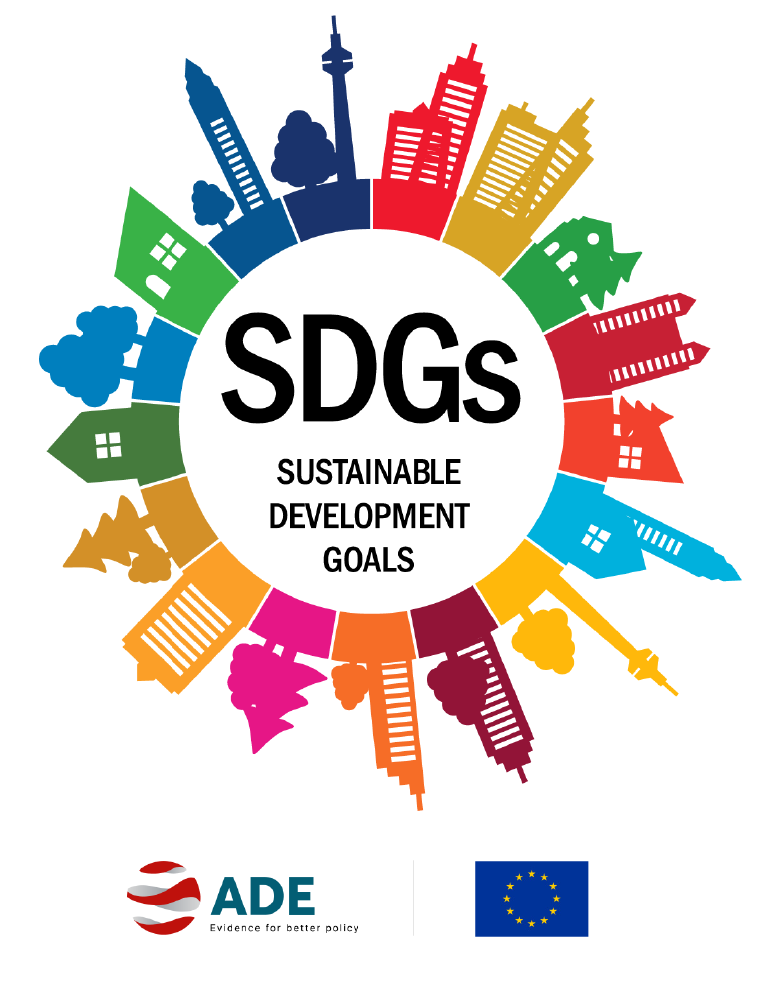
- Europe, European Union
- December 2021 - April 2023
- Partner(s): ADE, DG INTPA (Funder)
The main objective of this evaluation, led by our partner ADE, was to provide an independent, evidence-based assessment of the contribution of the EU’s external actions in support of the implementation of the SDGs – not only as a set of individual goals, but also in relation to their integration into the EU’s external policy framework. In line with EU policy, this evaluation sought to be a stock-taking, lesson-learning, and forward-looking exercise, as well as an accurate assessment of achieved results.

- Global
- April 2022 - March 2023
- Partner(s): ADE, World Food Programme (Funder)
DPA, in collaboration with ADE, examined the WFP´s Disaster Risk Reduction and Management (DRR\M) and Climate Change (CC) policies under one evaluative framework, as well as in synergy with the current evaluation of the WFP Policy on Building Resilience for Food Security (2015). This evaluation followed WFP OEV’s methodological approach for policy evaluations, with the objective of providing a global analysis of the quality of design and activities for the implementation of the two policies. DPA used mixed, participatory, and innovative methods, including country case studies with field visits, desk reviews (with text analysis), a global staff survey, and a comparative learning exercise.
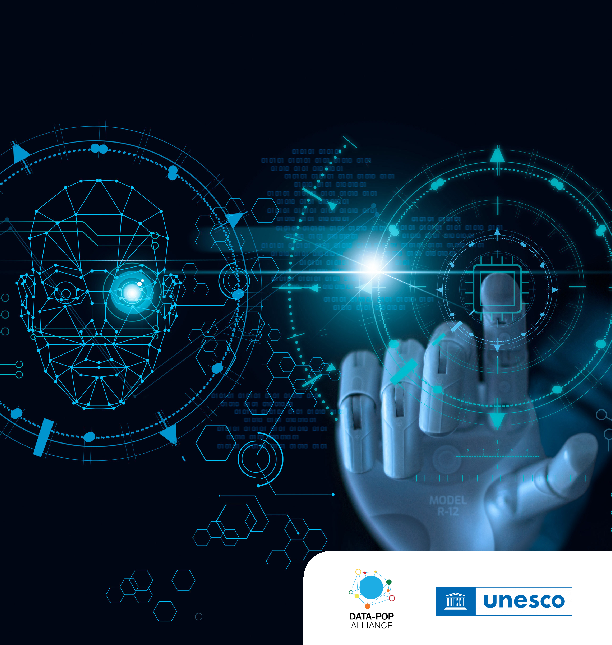
- Middle East and North Africa (MENA), Morocco
- November 2022 - February 2023
- Partner(s): UNESCO (Funder)
The main objectives of this feasibility study were to evaluate the capacity and skills of the AI Movement in Morocco to fulfill the intended role and objectives and to align with UNESCO’s principles and requirements to become a Category 2 Center. This report presented the evaluation results based on the nine criteria outlined in Document 40 C/79, following visits to the center’s facilities and interviews with representatives from the center, University Mohammed VI Polytechnique, and UNESCO. The first section, “Strategy and Programs,” assessed the alignment of the center’s strategies and programs with those of UNESCO and their contribution to global development, including the achievement of the SDGs. Section 2, “Management and Governance,” presented the evaluation results of the governance framework, operational functioning of the center, human resources, and available infrastructure. The third section, “Sustainability,” provided an overview of the current financial and operational sustainability status and future projections.
Digital Maturity Assessments

- Global
- January - May 2023
- Partner(s): Norwegian Refugee Council (NRC) - (Funder)
NRC, through its Digital Community Hubs, aimed to set up a two-way dialogue with communities, share relevant information with vulnerable people in an accessible way, collect real-time data on needs to deliver better programs in an integrated manner, rapidly deploy and utilize the platform, and connect to various communication channels. However, as NRC advanced its digital transformation strategy, the need to ensure constant learning about the potential, limitations, and risks of digital initiatives was fundamental. The adoption and effective use of digital tools were part of digital transformation processes that could be hindered or enabled by a wide variety of factors, with no “one-size-fits-all” journey. Additionally, not all sectors of an organization underwent the same changes or disruptions, making the implementation of digital initiatives a highly dynamic process with different and asymmetrical impacts across and within sectors. Thus, assessing the roll-out and implementation of the DHCs required a holistic approach, similar to the one DPA utilized during the development of NRC’s Digital Maturity Assessment and in the after-action review of NRC’s digital grants management tool, Cycles.
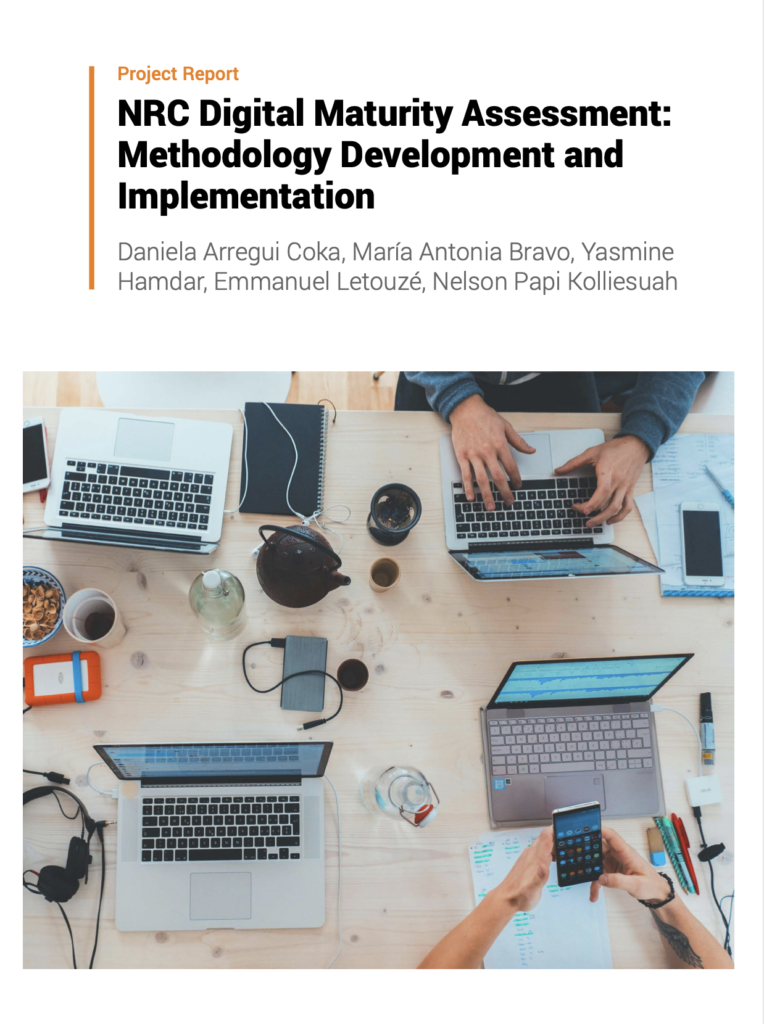
- Bangladesh, Global, South & Southeast Asia, Sudan
- November 2021 - June 2022
- Partner(s): Norwegian Refugee Council (NRC) - (Funder)
DPA developed a Digital Maturity Assessment (DMA) framework to provide NRC Country Offices (COs) with a tool to self-assess their digital transformation journey based on the perceptions and experiences of its staff. The DMA framework is the analytical background guiding the calculation of a Digital Maturity Score that measures the level of digital transformation in the COs based on qualitative data on:
• Digital ecosystem, data, and tech management;
• User-centricity and digital inclusion;
• Digital mindset, literacy, and innovation;
• Strategy, governance, policies, and frameworks; and
• Investment and partnerships.
The DMA was tested in the COs in Bangladesh and Sudan. The results and outputs of these pilots were made available in an interactive dashboard created to facilitate the visualization and extraction of insights.
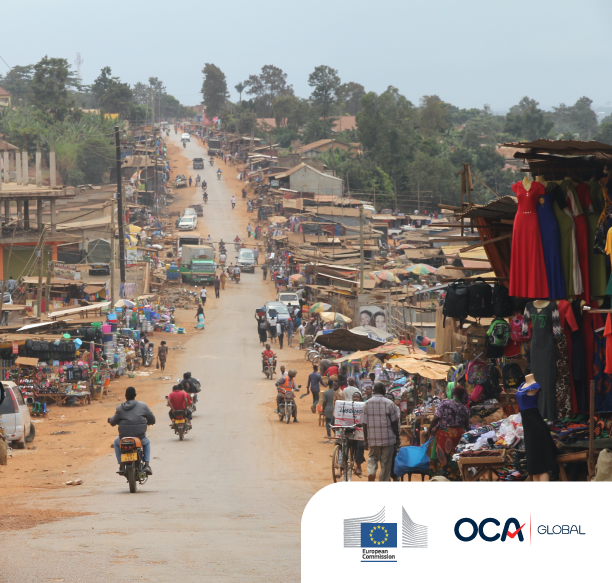
- Europe, European Union, Sub-Saharan Africa (SSA)
- January - March 2022
- Partner(s): DG INTPA, OCA Global Consulting (Funder)
This series of three reports analyzed varying aspects of Africa-EU and provided technical policy insights to strengthen the European Commission Directorate General for International Partnerships’ (DG INTPA) capacity in “knowledge-based” policymaking. Each report was conducted through a study and analysis of policy briefings, taking into account EU political interests towards Africa, as well as relevant existing legally-binding agreements, political declarations and strategic documents. The topics of each report included:
(1) Transport and Infrastructures;
(2) Digital Technologies and Services;
(3) Sustainable Energy and Climate Change; and
(4) Private Sector and Trade.

- Global
- September - December 2022
- Partner(s): Norwegian Refugee Council (NRC) - (Funder)
In this review commissioned by the Norwegian Refugee Council (NRC), DPA studied the development, roll-out, and implementation of Cycles, a digital grants and project cycle management tool. DPA assessed the state and effectiveness of the current system, and identified current and future needs for a digital project and grants management tool.
Digital Ecosystem Research

- Global
- December 2023 - August 2024
- Partner(s): UNICEF (Funder)

This project aimed to support the Inter-American Development Bank (IDB) in preparing for the IDB Andean Summit event held on November 29, 2018, in Quito, Ecuador. A study was generated that identified new Big Data tools being developed and/or used by academic institutions, international organizations, and the public or private sector that would concretely benefit current and future IDB projects. Based on DPA’s experience, the consultancy’s goal was to contribute to the IDB’s knowledge, identification, and capabilities regarding available technological tools that provided observable material improvements at different stages of current or future projects. The study focused on IDB projects in five countries in the region: Bolivia, Colombia, Ecuador, Peru, and Venezuela.
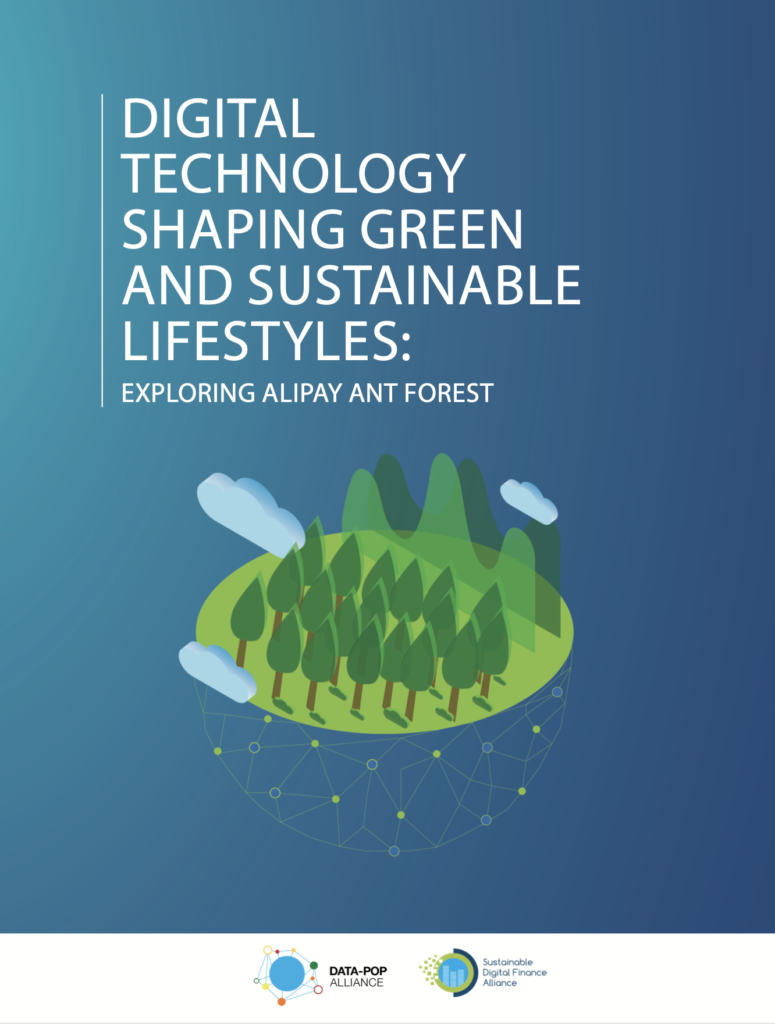
- Brazil, China, Germany, Japan, South Korea, United Kingdom, USA
- May 2019 - July 2020
- Partner(s): Green Digital Finance Alliance (GDFF) - (Funder), Sustainable Digital Finance Alliance, UNEP Inquiry
This report analyzed Alipay’s Ant Forest’s exponential growth, its trajectory, and vision to unlock the power of individual behavior change for climate change mitigation. It explained how this green initiative, through digital functions, managed to encourage users to engage in low-carbon activities in their daily life. It estimated that the market size for an innovation such as Alipay Ant Forest was roughly three times the current population of the United States, noting that up to 8.6% of emissions tied to public transportation could be avoided across seven high-emission countries if similar green initiatives were to be implemented over the 2020-2030 period. This project was carried out with the support of the Sustainable Digital Finance Alliance and UNEP Inquiry.
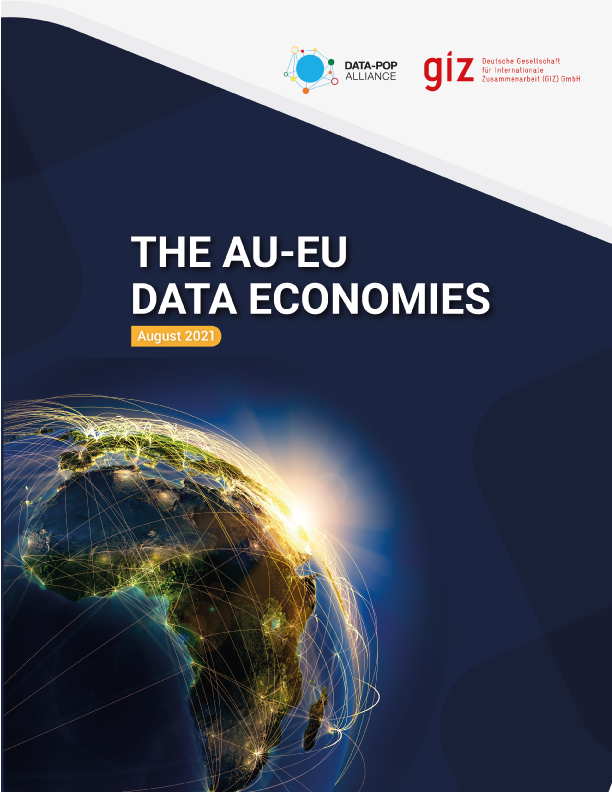
- Europe, European Union, Sub-Saharan Africa (SSA)
- April - August 2021
- Partner(s): African Union, European Union, GIZ (Funder)
In collaboration with the European Union and the African Union, and support from GIZ, DPA developed an overview of the Data Economy Framework between Europe and Africa in a concise report focused on the potential of the data economy in Africa, and its potential to boost the African-European data market exchange. The final report discussed the landscape of the African data economy and mapped the potential fields of common interest between the African and European Unions. The findings synthesized information from recent in-depth studies, as well as from indices on inclusive internet, affordability drivers and network readiness.

- Mauritania, Sub-Saharan Africa (SSA)
- November 2022 - June 2023
- Partner(s): Ministère de la Transition Numérique, de l'Innovation et de la Modernisation de l'Administration, World Bank (Funder)
The Mauritania component of the West Africa Regional Digital Integration Program (WARDIP-Mauritania) is expanding access to broadband and digital services through the development and integration of the country’s digital markets with those of the West African region. The project focused on 3 key elements for the integration of digital technologies at the regional level: the connectivity market, the data market, and the online market. This involved:
(1) Continuing the efforts begun under the WARCIP-Mauritania Project to expand connectivity, lower cost, and improve quality of service;
(2) Enabling the secure exchange, storage, and processing of data across borders, and supporting regional deployment of and access to data-based services and innovation;
(3) Expanding access to and delivery of public and private online services; and
(4) Establishing transparent and secure e-commerce at the regional level.

- Global, United Kingdom
- August 2023 - May 2024
- Partner(s): CABI (Funder)
Data-Pop Alliance (DPA), in partnership with CABI, launched a collaborative project to develop a comprehensive repository of resources highlighting the utility of the FAIR Data Principles for agricultural development. This initiative aims to assist project officers in effectively integrating the FAIR Principles into their work by providing practical resources and tools, including Workbooks and Factsheets for each step of the FAIR implementation process. DPA has developed a methodological approach centered on collecting qualitative data at different stages of the research process on FAIR frameworks.
Data and Digital Strategy
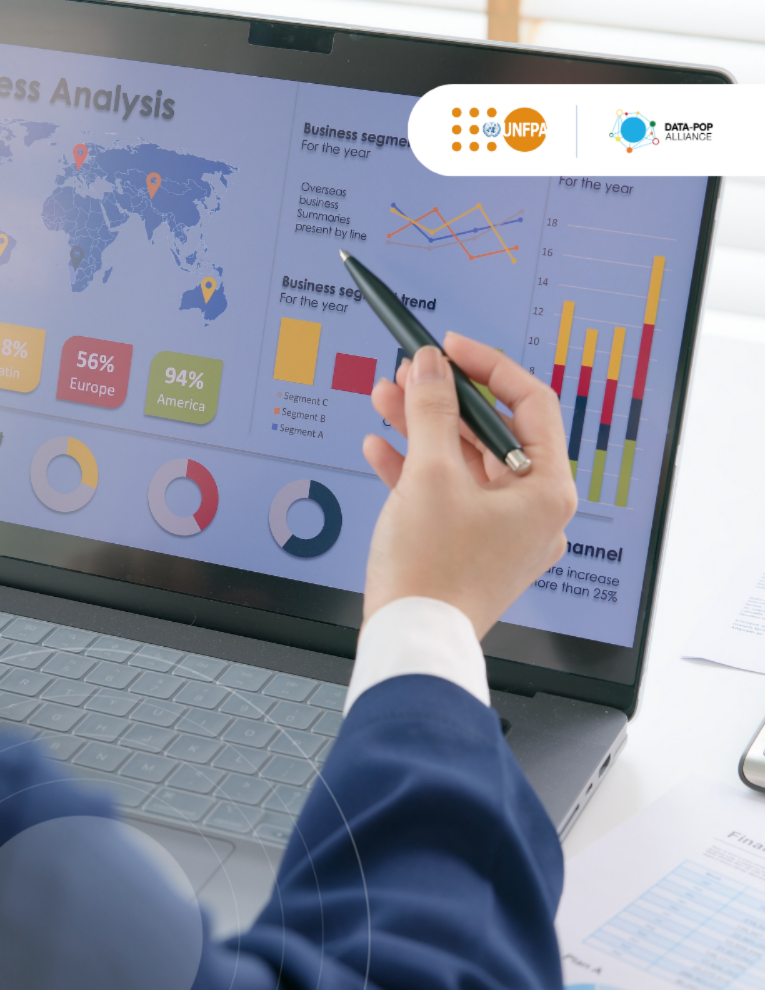
- Morocco
- Partner(s): UNFPA (Funder)
This project will deliver a structured training program in applied data analysis through a hybrid format that combines in-person and remote sessions. The inception package will finalize the curriculum, assess baseline competencies, and provide essential learning materials. An interim report will track training progress, monitor individual learning outcomes, and present preliminary analytical outputs. At the conclusion of the program, participants will produce 3 final reports supported by reproducible scripts and visualizations.
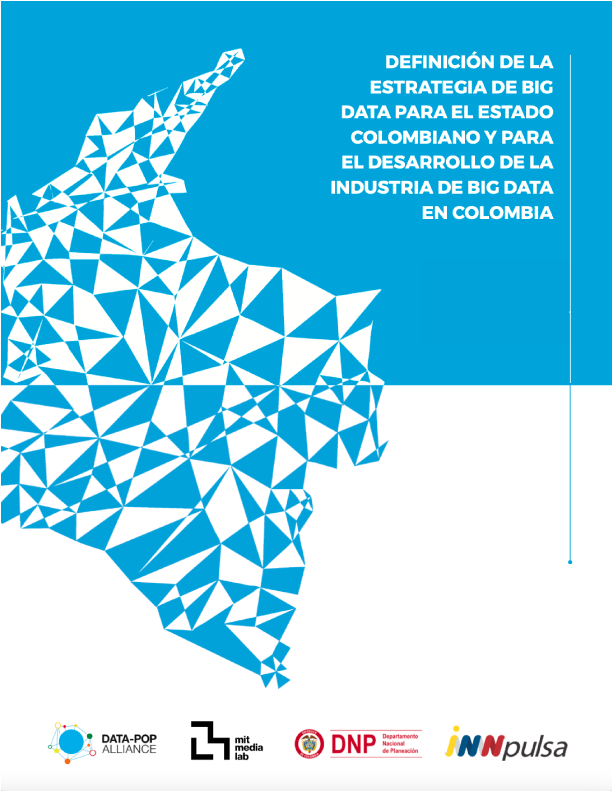
- Colombia, Latin America and the Caribbean (LAC)
- September 2017 - March 2020
- Partner(s): Department of National Planning (DNP) - (Funder), iNNpulsa, MIT Media Lab
The MIT Media Lab and DPA provided technical assistance to iNNpulsa—Colombia’s entrepreneurship and innovation agency—and to the Department of National Planning (DNP), in the design and development of the country’s first national Big Data strategy, which was presented to the President of Colombia in 2020. After intensive research, DPA produced nine diagnostic documents that were used to identify priority areas and specific actions that generated the necessary synergies to achieve four strategic objectives of the project:
(1) Strengthen the Big Data ecosystem in the country;
(2) Develop analytical capabilities for greater and better use of data;
(3) Foster the digital economy; and
(4) Promote the adoption of Big Data solutions and AI for public administration.

- Ecuador, Latin America and the Caribbean (LAC)
- January - October 2020
- Partner(s): GIZ (Funder), GIZ Data Lab, GIZ Ecuador
In partnership with the GIZ Data Lab, this project sought to create a Toolkit to guide GIZ in the use of nontraditional data sources throughout the project lifecycle. The tool was designed and developed from a thorough analysis of GIZ processes, with the goal of understanding how and where non-traditional sources of data could be leveraged in the formulation, design, implementation, and evaluation of their projects. The Toolkit, designed with a user-centered approach, was tested and tried during two workshops to support GIZ Ecuador’s “Ciudades Intermedias Sostenibles” II.
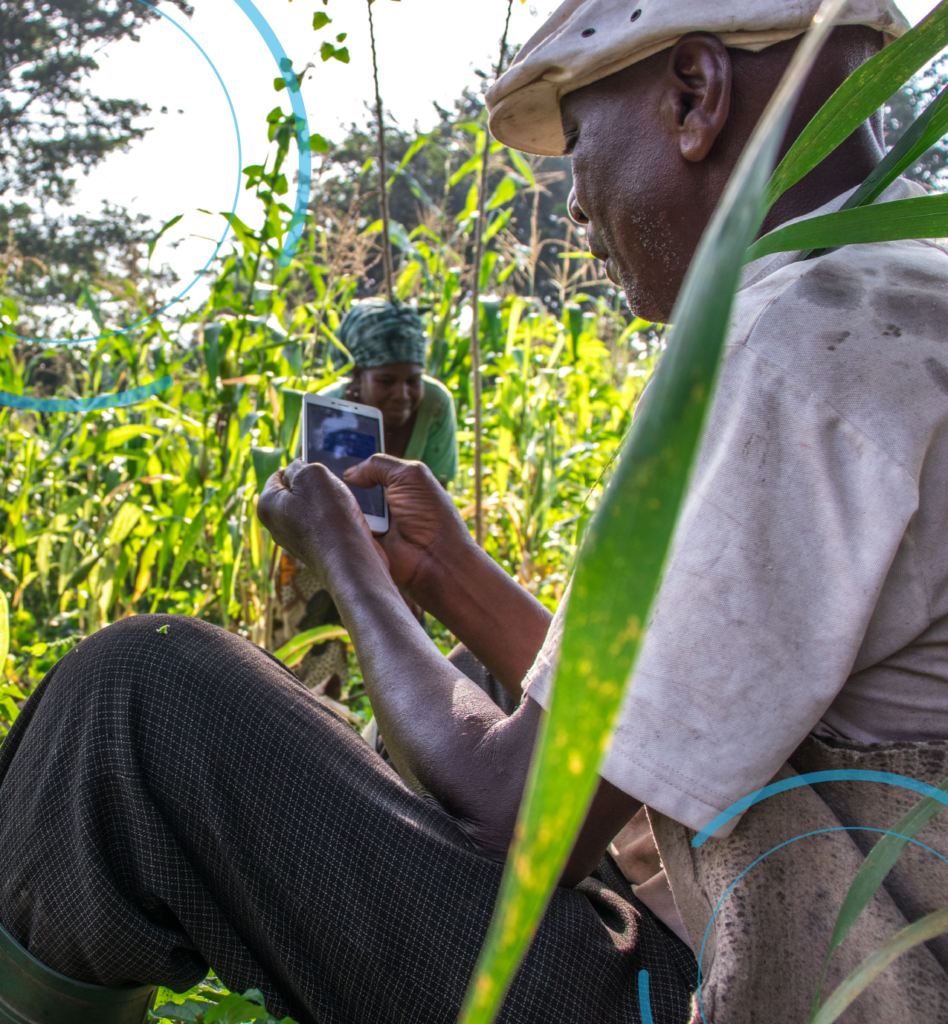
- Sub-Saharan Africa (SSA), Togo
- November 2018 - February 2019
- Partner(s): UNDP Togo (Funder)
Data-Pop Alliance (DPA) provided technical assistance to the United Nations Development Programme (UNDP) Togo Country Office (CO) to support its efforts to leverage open and Big Data for the country’s development, including SDG monitoring and promotion. The proposed consultancy aimed to advance the state of knowledge, know-how, awareness, and capacities to harness the potential of Open Data and Big Data in Togo. The project was expected to contribute to the recognition of the importance of data, ensuring that access and analysis of personal data did not infringe on people’s privacy, safety, and agency.

- Global
- April 2020 - June 2021
- Partner(s): GIZ (Funder), GIZ Data Lab
Data-Pop Alliance partnered with GIZ Data Lab to build a customized data sharing model that could be implemented throughout GIZ as a whole, and that could also function as a tool to be used both by project managers and leaders in the organization as they work to mainstream GIZ’s data strategy.
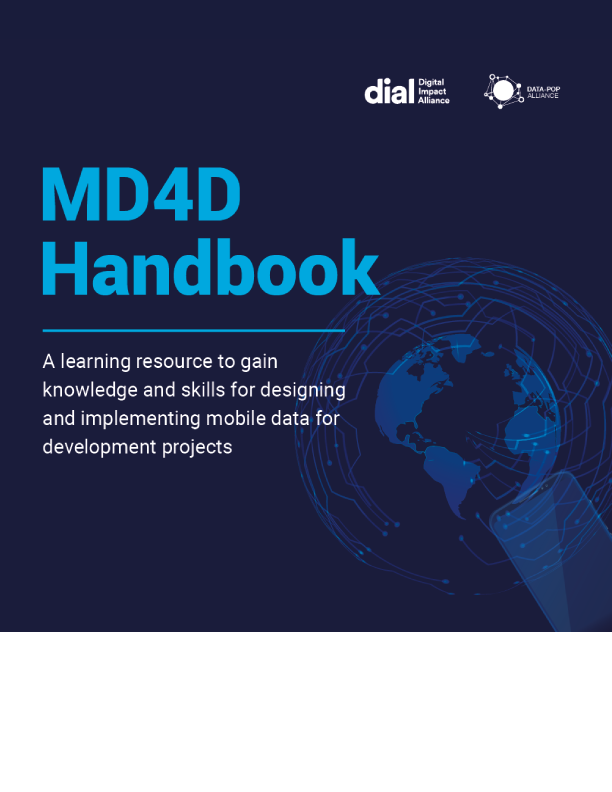
- Global
- June - December 2020
- Partner(s): Digital Impact Alliance (DIAL), United Nations Foundation (Funder)
This interactive handbook, developed in collaboration with the Digital Impact Alliance (DIAL), serves as a hands-on resource to help mid-to-senior level staff of Mobile Network Operators (MNOs), National Statistical Offices (NSOs) and other interested parties understand and develop MD4D projects. DPA’s contribution to the handbook involved structuring key content and presenting use cases, lessons and experiences developed in different contexts (e.g. our work with cell-phone metadata in Colombia, Senegal, Lebanon, and the Maldives). The project also took into consideration the new demands and challenges that the COVID-19 pandemic has created for the operationalization of these data.

- Sub-Saharan Africa (SSA)
- April 2022 - August 2023, June - December 2024
- Partner(s): Mastercard Foundation (Funder)
Phase 1:
DPA developed the Sector Pulse Platform, a data-driven tool that will provide the Mastercard Foundation (MCF) with access to key information on global and regional trends relevant to its work in Africa. This tool will support the foundation’s future investment decisions with an evidence-based and system-change approach. Additionally, the tool will grow the organizational awareness and understanding of the most important issues shaping social debates in Africa. The development of this tool is structured across 4 project phases: discovery, development, reporting, and training. The platform is structured around three data modules: The ‘Impact Evidence’ module, the ‘Social Listening’ module, and the ‘Policy and Funding Development’ module.
Phase 2:

- Senegal, Sub-Saharan Africa (SSA)
- January - May 2023
- Partner(s): GIZ, Ministère de la communication, des télécommunications, et de l'économie numérique (Senegal), Smart Africa (Funder)
DPA, in collaboration with Smart Africa and GIZ under the leadership of the Ministry of Communication, Telecommunications and the Digital Economy, led the development of Senegal’s National Data Strategy. The main objective was to identify all the measures and propose an implementation roadmap in order to:
(1) Enable the digital ecosystem to leverage the potential of data for economic growth;
(2) Promote innovation and the use of emerging technologies, with the reinforcement of skills and the development of a data culture; and
(3) Foster cross-border collaboration in terms of commerce and data in Africa, all while respecting privacy and human rights.
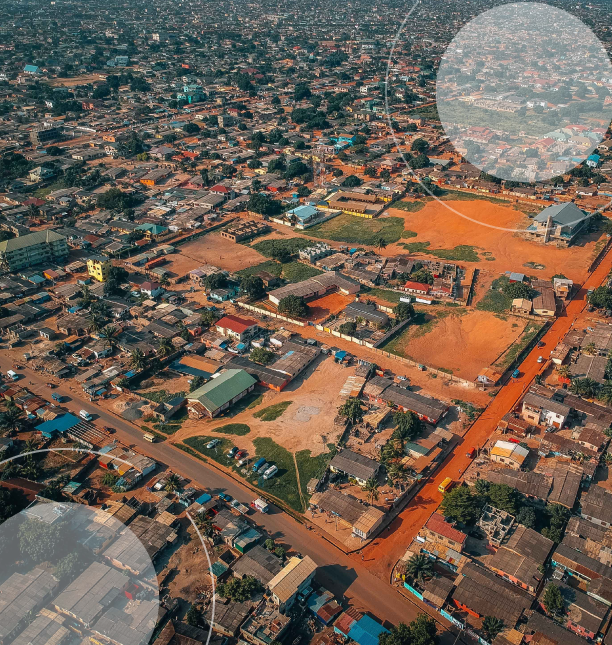
- Ghana, Sub-Saharan Africa (SSA)
- October 2023 - June 2024
- Partner(s): GIZ, Ministry of Communication and Digitalisation (Ghana), Smart Africa (Funder)
Data-Pop Alliance, in partnership with Smart Africa, contributed to the development of Ghana’s national data strategy in line with the country’s priorities in terms of sustainable development, promotion of innovation, the creation of value and, above all, digital sovereignty. The general objectives are:
(1) Promoting the Sustainable Development Goals (SDGs), including by strengthening data partnerships and local capacities;
(2) Promoting good governance in general, and data governance, data sharing and collaboration with the private sector;
(3) Supporting better targeting and use of development data;
(4) Promoting research and innovation in the field of data, academia, new businesses; and
(5) Developing data skills.
Monitoring, Evaluation, Accountability & Learning (MEAL)

- Global
- Partner(s): GSMA (Funder)
The humanitarian sector stands at a pivotal moment in determining how to responsibly harness emerging technologies such as big data and artificial intelligence to enhance the speed, precision, and impact of humanitarian action. Among these tools, mobile data holds particular promise for generating timely insights before, during, and after crises—informing mobility, displacement, climate preparedness, and targeted assistance. However, ethical, legal, and governance considerations remain a major and challenging milestone to secure, to ensure the responsible use and sharing of mobile data, especially in fragile and conflict-affected settings. To address these gaps, the GSMA Mobile for Humanitarian Innovation (M4H) programme has commissioned DPA to study how mobile data is currently used across humanitarian contexts and evaluate its value relative to associated risks. The research will examine how mobile network operators (MNOs) balance incentives, risks, and safeguards in data-sharing, analyze existing governance frameworks, and identify key enablers and barriers to scale and how humanitarian actors have used these data to support their work.
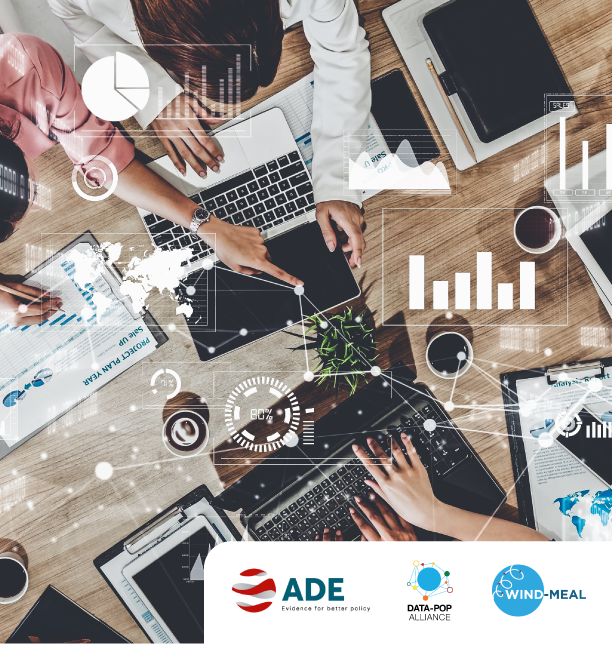
- Global
- 2022 - Ongoing
- Partner(s): ADE
ADE and DPA have created WIND-MEAL, a portfolio of services that build and improve Whole-of-Institution Data-enabled (WIND) Monitoring, Evaluation, Accountability and Learning (MEAL) systems, with a focus on accountability (A) up to impact, and on learning perspectives (L) t generate meaningful, up-to-date knowledge that supports better decision-making. Based on our experience and values, ADE and DPA develop MEAL systems that are participative, relevant, reliable, realistic, agile, and impact-oriented.
The WIND-MEAL service portfolio includes a series of activities that can be combined in a modular manner, depending on the requirements and needs of the client. The MEAL system can be created from scratch or adapted to an existing system, integrating different sources of data and meeting different accountability and learning objectives, such as training, diagnosis, data roadmap and insight creation.

